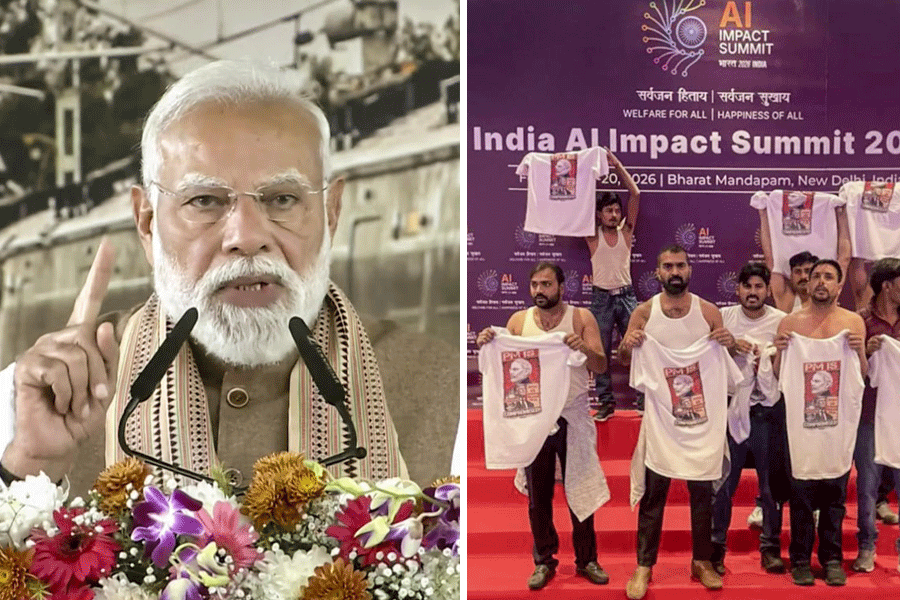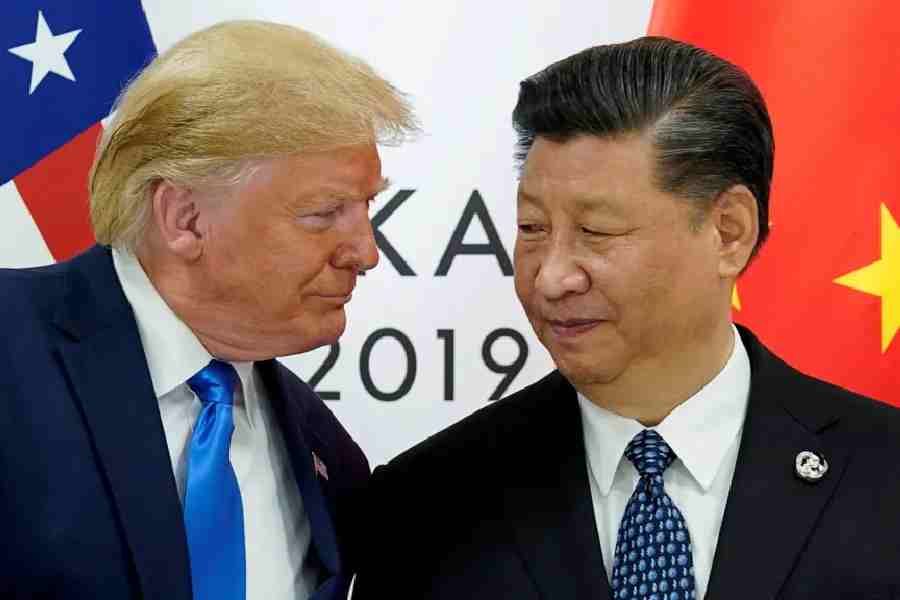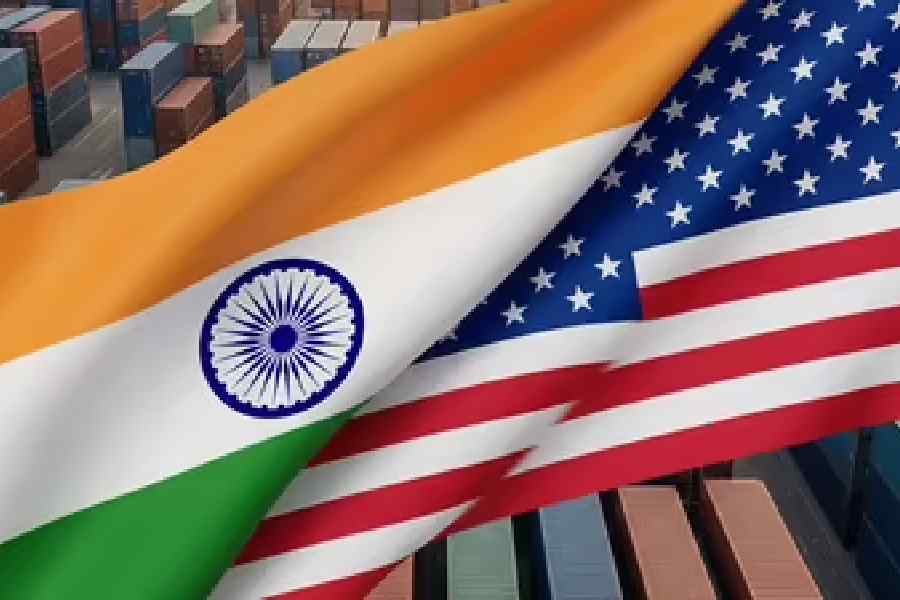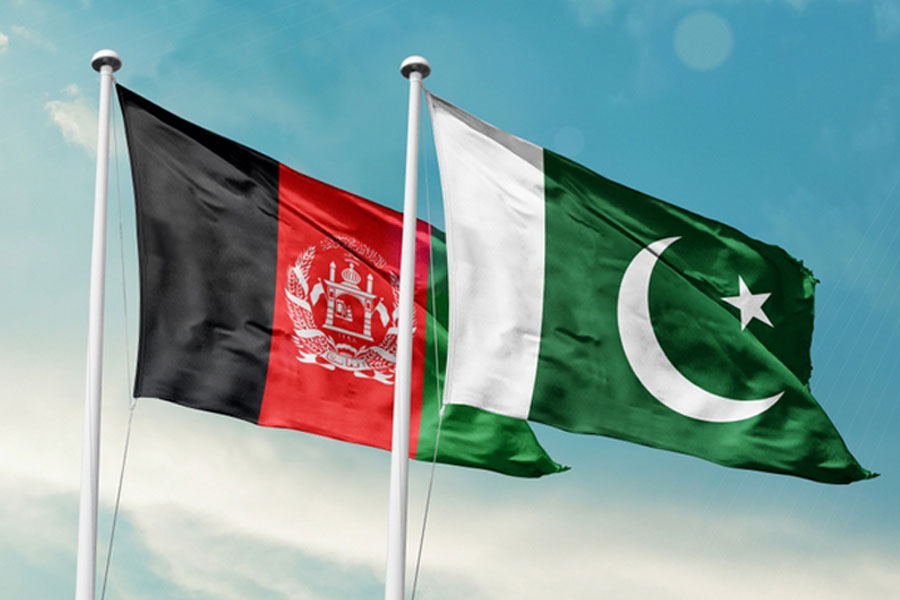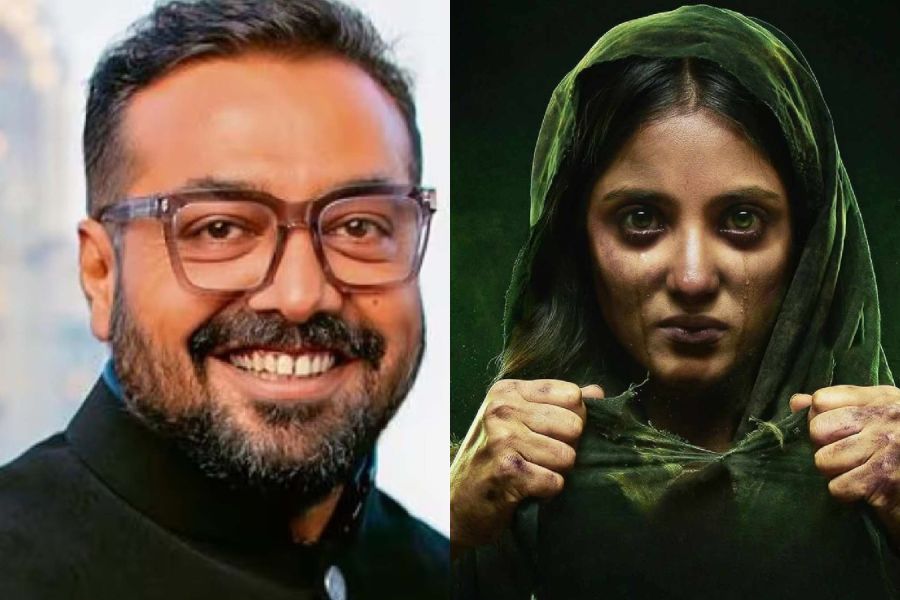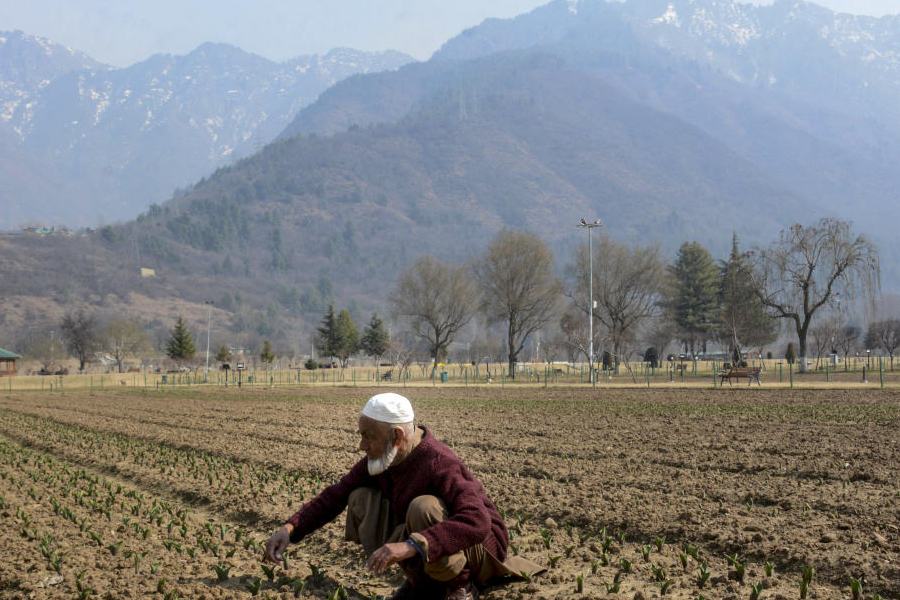 |
| Chidambaram at a meeting in Delhi on Tuesday. (PTI) |
New Delhi, Nov. 11: Union home minister P. Chidambaram today obliquely backed his cabinet colleague Mamata Banerjee’s assertion that the Left Front government had lost the right to rule Bengal and should go and said it was for the CPM to respond to that call.
In an exclusive interview to The Telegraph at his North Block office here this evening, Chidambaram said: “She (Mamata) is articulating her party’s point of view, and it is a point of view which appears to have found resonance across Bengal.”
It was a call of the Opposition party “and it is for the ruling party to respond to that call”, he added.
Asked in what way the Buddhadeb Bhattacharjee government should respond to the call to step down from office in the wake of the bypoll rout, Chidambaram said: “There are several responses possible in a democratic polity but I am not going to list them down.”
On whether he thought the Left Front government had lost its nerve after repeated electoral defeats over the past few months, Chidambaram did not mince words. “Elections are not a matter of testing nerves. Elections are a test of a party’s support. It is pretty clear from the latest byelection results that the party which has the largest measure of support in Bengal today is the Trinamul Congress.”
The home minister’s disdain for the CPM went beyond its electoral misfortune as he echoed Mamata’s charge of a CPM-Maoist nexus.
Speaking at length on the Maoist threat facing large parts of India, he maintained that the CPM was to blame for the spread of Naxalite influence to Bengal.
“I have said this before and the CPM objected but I will say it again — the CPM and the CPI (Maoist) did not confront each other all these years. They thought they were on the same side of the line and that the enemy was the Congress or other mainstream parties which they said represented the landlords, the capitalists and the bourgeoisie.”
He went on to add: “I am not in a position to say when they found themselves on the opposite sides of the dividing line. Today, they are confronting each other. In a way, they (the CPM) are paying the price for 20 years of living together.”
On the CPM’s claim that it had been battling the Naxalites ever since Charu Mazumdar broke away from the party in 1967, Chidambaram emphatically disagreed. “That is not correct. Take Lalgarh which falls under the Jhargram Lok Sabha constituency which the CPM won with a big margin. Why is it that the CPM MP can no longer go there today? Why is it that people who voted for the CPM in the month of May have turned against them today? The inference is pretty obvious. It means that they (the CPM) won with the support of the CPI (Maoists).”
That apart, Chidambaram also blamed lack of governance for the spread of the Maoist threat. Asked whether he thought the Maoists had increased their influence because the mainstream Left had failed to deliver on their radical promises, he said: “That is true but it is a misguided reason. To my mind, the real reason in all affected states is poor governance. The state has failed to deliver basic goods and services to people in the area (where Maoists have influence.) Take Jharkhand, for instance. It was formed as a separate state 10 years ago and three of the four chief ministers since then came from the BJP stable. No Congressman has been chief minister or minister in Jharkhand. Those who ruled Jharkhand must bear responsibility (for its status as the most Naxalite-affected state).”
Asked whether he blamed Naveen Patnaik and Bhattacharjee on the same count, Chidambaram replied: “I am not pointing fingers at individuals. I am saying that governments which do not have an inspiring record of governance are most affected.”
But then what of his reported stance that the “menace” must be controlled first and only then will development follow? Describing it as “only a question of sequencing,” Chidambaram said: “My review shows that money poured into Naxalite-affected districts delivers nothing. The bulk of the money goes to the CPI (Maoist) — they impose levies on contractors or they simply extort. Therefore, we must re-establish civil administration first in that district and then allocate money. Second, if the district remains under their influence, whatever infrastructure has been built — schools, roads, primary health centres, telephone towers — have been destroyed. So our first job is to re-establish civil administration which means the Naxalites must stop violence or they must retreat.”
Regarding the argument of civil society activists that the Centre had suddenly decided to crack down on Left-wing extremists because of the huge mining interests in tribal areas under Naxalite influence, Chidambaram said: “The first part of the answer is the Centre is not cracking down; the second is that counter-insurgency operations have been taken by state governments for the last 10-15 years and is not new; and the third is if MoUs have been signed and mining licences granted, it has been done by the state governments. So you can’t suddenly paint the Centre as a monster.”
Then, adopting a different tack, the home minister said: “I am willing to request the Prime Minister that all MoUs be reviewed. Will it put an end to Maoist violence? Will they give up armed liberation struggle? Those who make these charges against the government (that it is backing the mining lobby et al) must answer this issue. The choice is stark — do you support the democratic, republican form of government or do you support armed liberation struggle and seizure of power?”
On the Maoists’ assertion that the Indian state was not truly democratic, Chidambaram said: “Then make it more democratic, join the democratic process, send better MPs and MLAs, give a more compassionate government, implement all your Left policies.”
He added with a bit of sarcasm: “After all, hasn’t the CPM claimed to be doing all that for the last 30 years?”
Asserting that every citizen of India must make a choice between standing by the democratic Constitution or seeking to overthrow it, Chidambaram said: “If the overwhelming majority of the people reject this form of government, of course there will be a revolution. But even in the last parliamentary election in Jharkhand, over 57 per cent voted and in the recent Maharashtra Assembly elections, 65.27 per cent in Gadchiroli voted despite the Maoist call to boycott the election and threat to punish those who voted.”
Reverting to the carrot-and-stick policy aimed less at disarming the Maoists than confusing their sympathisers, the home minister said: “Nevertheless, we do not regard the CPI(Maoist) cadres as enemies. They are citizens of this country. We have to contain violence but we have to talk to them on matters that agitate them.”
The Maoists had not responded to the offer of talks and Kishanji only yesterday had iterated that abjuring violence was not on their agenda since they believed in armed struggle. But the offer, Chidambaram said, was still open. “I am not asking them to lay down arms. I am too realistic to know that they won’t. All I am saying is halt violence.”
In the meantime, the state governments would continue with their counter-insurgency operations but when and where they would act was a decision “to be taken by the state concerned”. The Centre was only there to help with paramilitary forces, sharing of intelligence and giving “technical” assistance.
Asked if he was satisfied with the progress made by state governments since he took over the home ministry, Chidambaram said: “It is only when the menace is controlled and large areas come under civil administration, we can say we are satisfied. But that is some distance away.”


